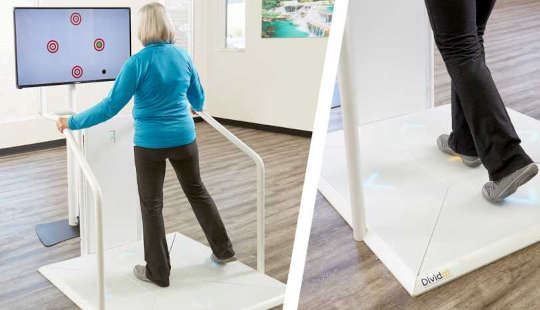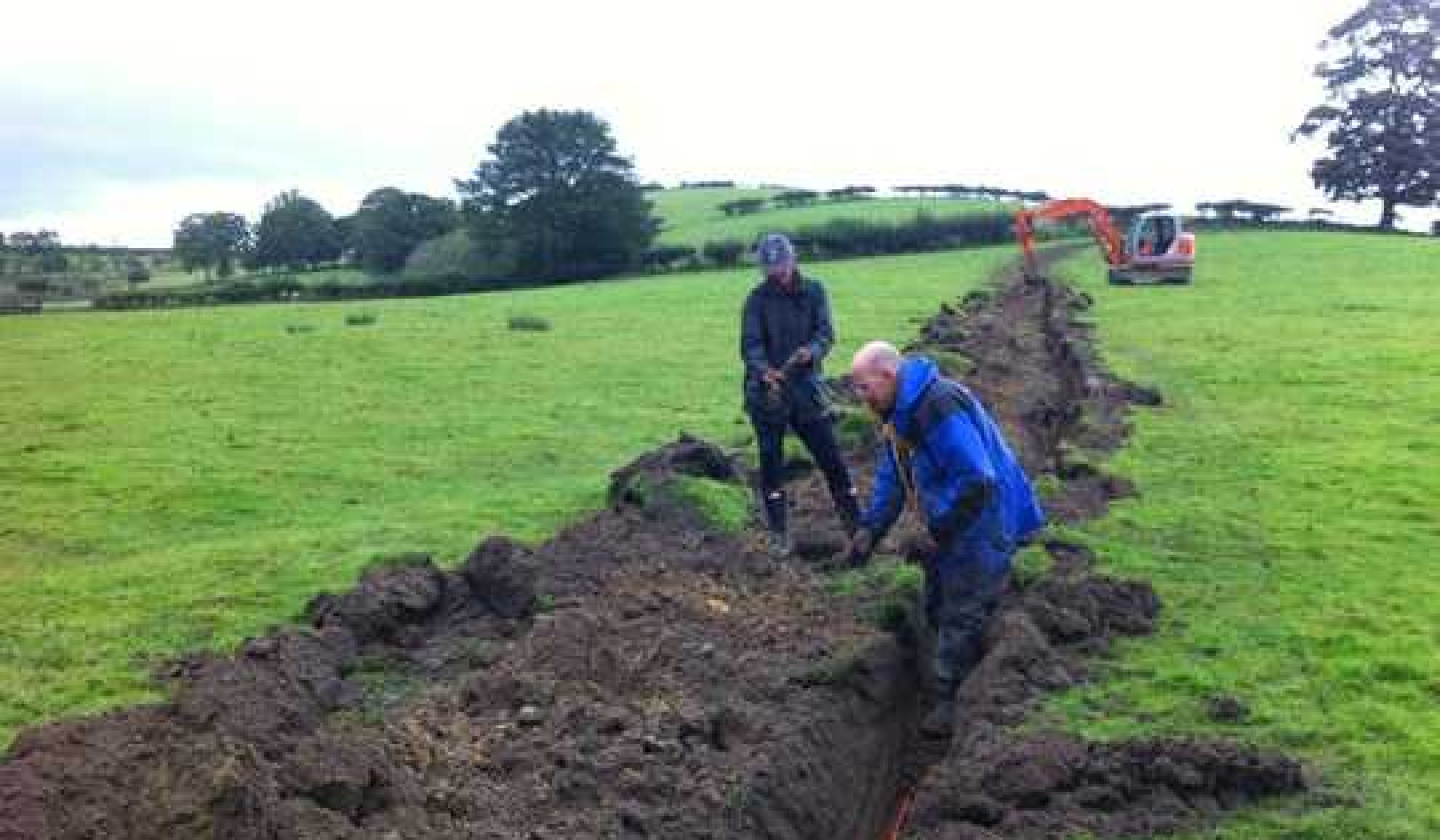 Training with Dividat Senso enhances cognitive skills, such as attention, concentration, memory, and orientation, in dementia patients (Credit: Dividat)
Training with Dividat Senso enhances cognitive skills, such as attention, concentration, memory, and orientation, in dementia patients (Credit: Dividat)
Cognitive motor training helps in the fight against Alzheimer’s and dementia, according to new research.
A dementia diagnosis turns the world upside down, not only for the person affected but also for their relatives, as brain function gradually declines. Those affected lose their ability to plan, remember things, or behave appropriately. At the same time, their motor skills also deteriorate. Ultimately, dementia patients are no longer able to handle daily life alone and need comprehensive care.
“It has been suspected for some time that physical and cognitive training also have a positive effect on dementia.”
To date, all attempts to find a drug to cure this disease have failed. Dementia, including Alzheimer’s—the most common of several forms of dementia—remains incurable. However, a new clinical study carried out in Belgium has now shown for the first time that cognitive motor training improves both the cognitive and physical skills of significantly impaired dementia patients.
Researchers used a fitness game known as “Exergame” developed by the ETH Zurich spin-off Dividat in the study.
In 2015, a team of researchers showed that older people who train both body and mind simultaneously demonstrate better cognitive performance and can thereby also prevent cognitive impairment. However, this study was carried out on healthy subjects only.
“It has been suspected for some time that physical and cognitive training also have a positive effect on dementia,” explains researcher Eling de Bruin, who worked with Patrick Eggenberger at the Institute of Human Movement Sciences and Sport at ETH Zurich. “However, in the past it has been difficult to motivate dementia patients to undertake physical activity over extended periods.”
With a view to changing this, Eva van het Reve, a former ETH Zurich doctoral student, founded the spin-off Dividat in 2013 together with her PhD supervisor de Bruin and another doctoral student.
“We wanted to devise a customized training program that would improve the lives of older people,” says van het Reve. The team developed fun exercises in order to encourage people already experiencing physical and cognitive impairments to participate in training, and the Senso training platform was born.
The platform consists of a screen with the game software and a floor panel with four fields that measure steps, weight displacement, and balance. The users attempt to complete a sequence of movements with their feet as indicated on the screen, enabling them to train both physical movement and cognitive function simultaneously. The fact that the fitness game is also fun makes it easier to motivate the subjects to practice regularly.
The researchers recruited 45 subjects for the study. The subjects were residents of two Belgian care homes, aged 85 years on average at the time of the study and all with severe dementia symptoms.
“The participants were divided into two groups on a random basis,” explains de Bruin. “The first group trained for 15 minutes with the Dividat Senso three times a week for eight weeks, while the second group listened to and watched music videos of their choice.” Following the eight-week training program, the physical, cognitive, and mental capacity of all subjects was measured in comparison with the start of the study.
The results offer hope to dementia patients and their relatives: training with this machine indeed enhanced cognitive skills, such as attention, concentration, memory, and orientation.
“For the first time, there’s hope that through targeted play we will be able not only to delay but also weaken the symptoms of dementia,” emphasizes de Bruin.
It is particularly striking that the control group deteriorated further over the eight-week period, while significant improvements were recorded in the training group.
“These highly encouraging results are in line with the expectation that dementia patients are more likely to deteriorate without training,” adds de Bruin.
But playful training not only has a positive impact on cognitive ability—researchers were also able to measure positive effects on physical capability, such as reaction time. After just eight weeks, the subjects in the training group reacted significantly more quickly, while the control group deteriorated. This is encouraging in that the speed with which older people respond to impulses is critical in determining whether they can to avoid a fall.
The research group led by de Bruin is currently working on replicating the results of this pilot study with people with mild cognitive impairment—a precursor of dementia. The aim is to use MRI scans to investigate more closely the neural processes in the brain responsible for the cognitive and physical improvement.
The research appears in Alzheimer’s Research & Therapy. - Original Study
Related Books:
The Body Keeps the Score: Brain Mind and Body in the Healing of Trauma
by Bessel van der Kolk
This book explores the connections between trauma and physical and mental health, offering insights and strategies for healing and recovery.
Click for more info or to order
Breath: The New Science of a Lost Art
by James Nestor
This book explores the science and practice of breathing, offering insights and techniques for improving physical and mental health.
Click for more info or to order
The Plant Paradox: The Hidden Dangers in "Healthy" Foods That Cause Disease and Weight Gain
by Steven R. Gundry
This book explores the links between diet, health, and disease, offering insights and strategies for improving overall health and wellness.
Click for more info or to order
The Immunity Code: The New Paradigm for Real Health and Radical Anti-Aging
by Joel Greene
This book offers a new perspective on health and immunity, drawing on principles of epigenetics and offering insights and strategies for optimizing health and aging.
Click for more info or to order
The Complete Guide to Fasting: Heal Your Body Through Intermittent, Alternate-Day, and Extended Fasting
by Dr. Jason Fung and Jimmy Moore
This book explores the science and practice of fasting offering insights and strategies for improving overall health and wellness.


























